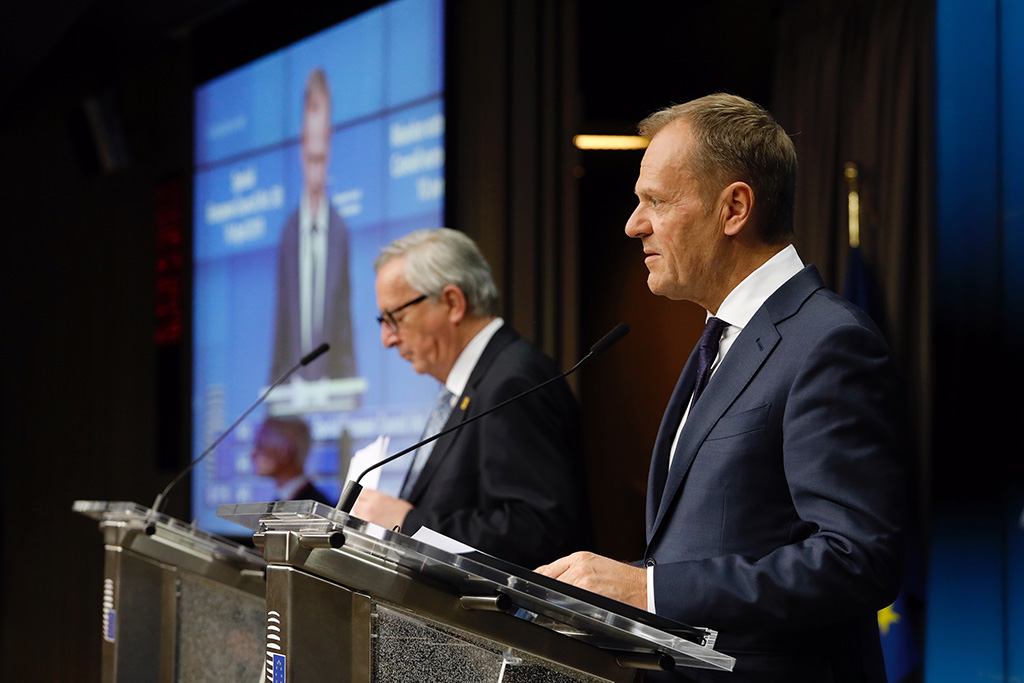
Brexit lends itself not to crystal-ball gazing but, at most, to conjecture. And so it goes on. But the new timetable imposed by the 27 on Theresa May could trigger unexpected internal dynamics in the UK, particularly with the prospect of elections to the European Parliament. For now, and having asked MPs to reflect over the Easter break, it represents a suspension of the process for an unknown period –at the latest until 31 October– but it could lead to a decision before 23 May, to a hasty withdrawal on 1 June, or even revoking the decision and the UK ending up remaining in the EU.
Summarising, the new extension to Brexit runs until 31 October (the new Commission’s term begins on 1 November). But if the UK does not take part in the European elections starting on 23 May, it will have to leave on 1 June. No-one, whether London or the rest of the EU, wants a disorderly exit without an agreement. But if the UK were to continue to be part of the EU without electing its representatives to the European Parliament it would give rise on 2 July –the day on which the new European Parliament convenes– to an illegal state of affairs. Westminster could vote to leave the EU at any time prior to 23 May (day of the European election in the UK) or 1 June at the latest, without holding the election. In other words, this time the –or at least a– moment of truth really is nigh.
It is a truth rooted in a fact: the problem of Brexit stems essentially from the need to avoid restoring a physical border between the two Irelands, because it would run counter to the 1998 Good Friday Peace Agreement. Without this requirement, the UK would have already left. All this has led, among other things, to the British rediscovering the Irish problem, which had been consigned to oblivion, together with what membership of the EU means for managing it.
To overcome this moment of truth, British politicians need to resolve two types of contradiction. The first is between the Westminster parliament and the result of the referendum that endorsed the Brexit principle. There is a parliamentary majority in favour of remaining, but many MPs face constituencies where the majority of voters chose Brexit, a problem more acute for Labour MPs than their Tory counterparts. This leads to the second contradiction at the heart of the two main parties. The Conservatives are held to ransom by the most radical Brexiteers. The Labour Party, for the reasons given above, is unsure what to do; hence its call for a general election, because it thinks it would win, or, less enthusiastically, for a second referendum, not so much on Brexit as on the agreement struck by May. Corbyn was elected leader of his party, and secured a respectable result in the last general election, buoyed by young voters whose support he could lose if he fails to give a second chance to Remain.
The May government, as it was bound to do, has started making preparations for the European election on 23 May, not without a sense of humiliation and indeed misgiving, because the two main parties could emerge badly scathed by the result. The 2014 European elections in the UK gave a great deal of impetus to supporters of Brexit, such as Nigel Farage and his former UK Independence Party, which won 24 of the 73 seats at stake. In this possible new election, if it is held, new options for Remain could benefit, such as the Change UK movement or the group of 11 newly independent MPs who have defected from Tory and Labour ranks. The same might apply to other groupings inclined to Remain, such as the Liberals (reduced to a single seat in the 2014 European Parliament), or factions within the Tory and Labour parties. But their fragmentation into various political groupings could take its toll on Remainers in terms of seats.
The possibility cannot be ruled out of the Brexiteers, reorganised in various parties, including the Conservatives, regaining strength (Farage now has a Brexit Party) and winning the election. And if they did so, it might hasten Brexit. In other words, the European election could become a substitute for a second referendum. It could even discredit May and pave the way to her being replaced as leader of the Conservatives and the government –an alarming prospect, since worse candidates than May could win– or trigger a general election.
Since 1999, European elections in the UK, unlike general elections, have not been run with single-member constituencies and a first-past-the-post system, but with regional lists, and the D’Hondt method in England, Scotland and Wales, and first preferences in Northern Ireland; in other words, proportional systems that give possibilities of representation to options that would not manage to enter the Westminster parliament in national elections. The contradiction between parliamentary reality and the referendum is reduced in this context, but with an aggravating factor: it might be revealed even more starkly that the affinity for Brexit is an English (and Welsh) matter but is unpopular in Scotland and among the majority in Northern Ireland.
May will do everything possible to ensure parliament approves her withdrawal agreement before 23 May, but she has her work cut out without the help of Corbyn’s Labour Party, with whom she is holding talks, and which wants, as a minimum, to remain in a customs union with the EU, knowing that this option would split the Tories. And keeping the Conservatives together is May’s number one priority.
In other words, everything remains on the table. But the eventual holding or otherwise of the European election in the UK on 23 May could constitute a watershed, not only for Brexit, but for British politics; and eventually for the EU. It is not clear that it is what Macron intended with his hard-line stance on May’s demands.


